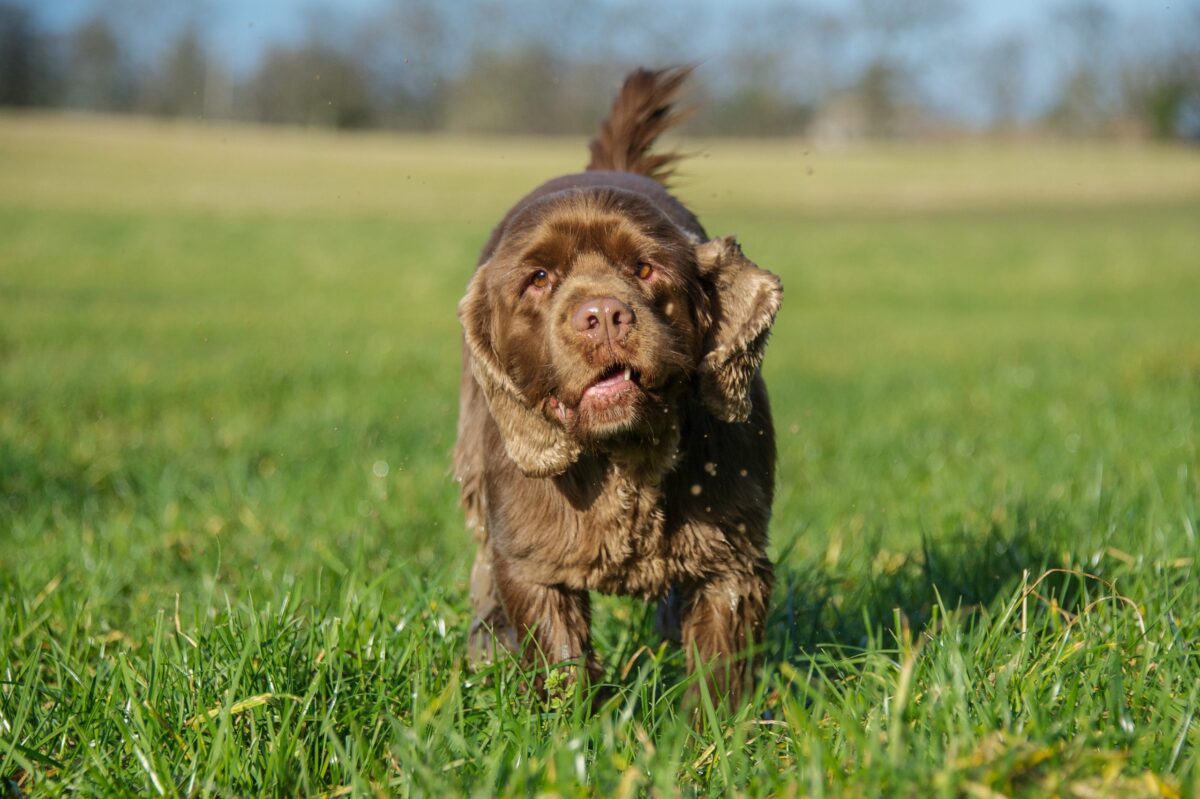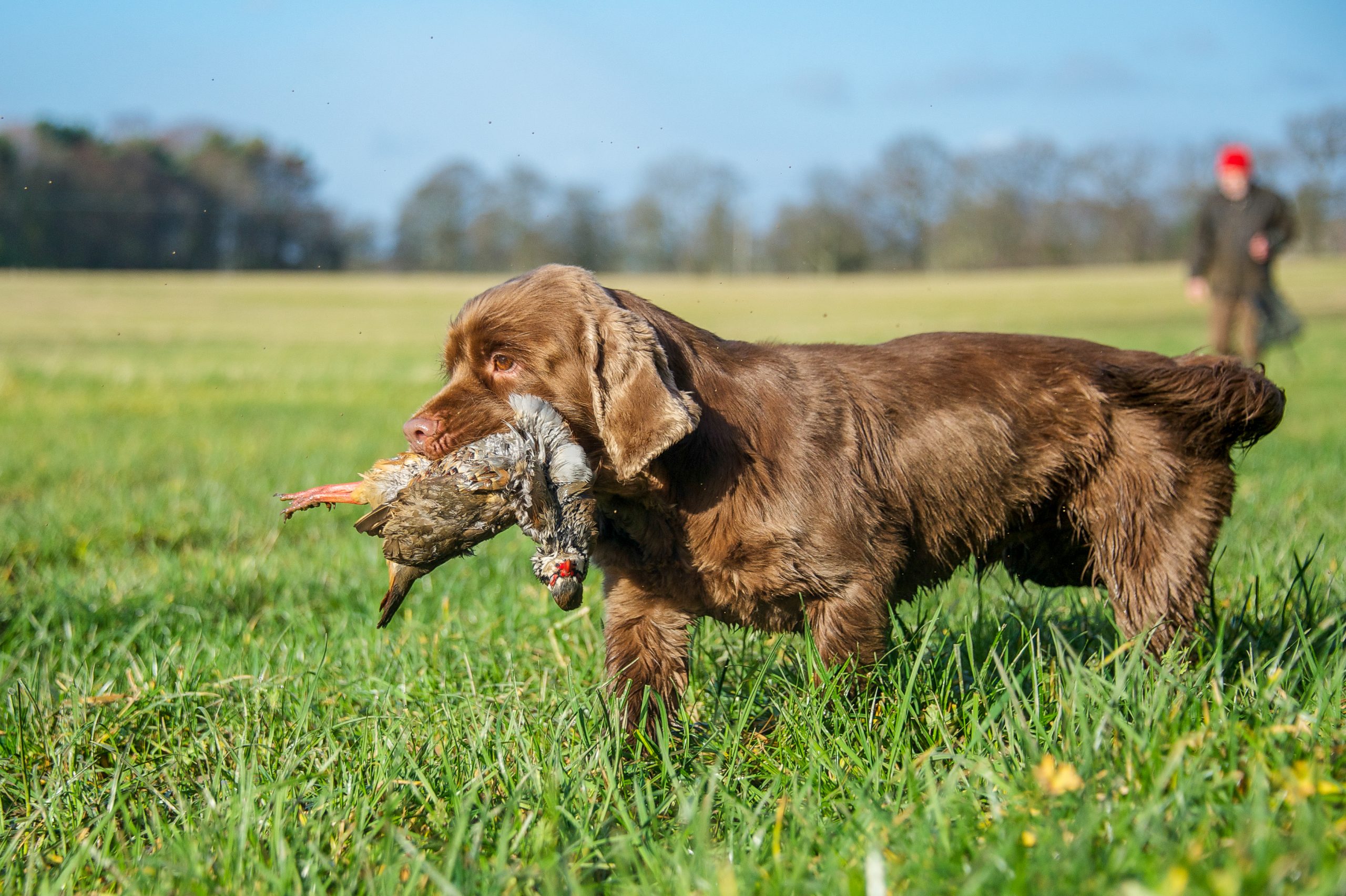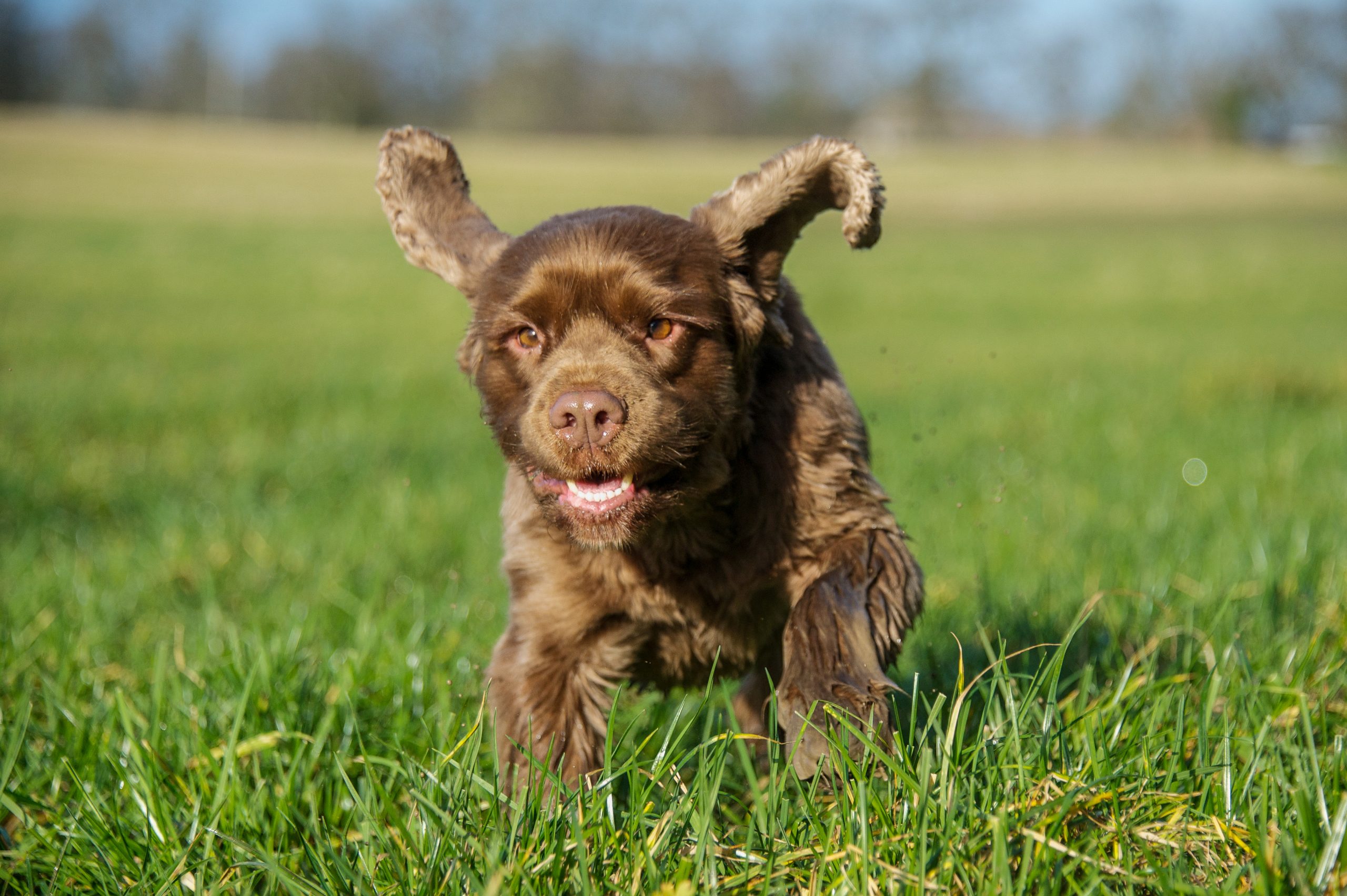Sussex Spaniel
No products found which match your selection.
Shelter Dog Meal Donation Count:
No products found which match your selection.
The Sussex Spaniel, with its affectionate nature, loyalty, and moderate energy level, makes an excellent family pet. They thrive in environments where they can be part of daily activities and enjoy the companionship of their human families. While their training may require patience due to their occasional stubbornness, their willingness to please and sociable nature make the effort worthwhile. Regular grooming and exercise are important for their well-being, making them a great match for families willing to invest time in their care. Their calm demeanor and adaptability also make them suitable for a variety of living situations, from apartments to homes with yards.
Originally bred for hunting in dense underbrush, the Sussex Spaniel is a hardy and strong dog. They are less speedy but are excellent at flushing out game with their persistent and methodical approach.

The Sussex Spaniel originated in Sussex County, England, in the 19th century. It was one of the first ten breeds recognized by the AKC in 1884. The breed was initially developed for hunting, specifically for its ability to work under dense cover.




Generally a healthy breed, Sussex Spaniels may be prone to certain genetic conditions like hip dysplasia and heart issues. Regular veterinary check-ups are important.
Their coat requires regular grooming to avoid matting. Brushing a few times a week and occasional trimming will keep their coat in good condition. Pay special attention to their ears, which need regular cleaning to prevent infections.
They have moderate exercise needs. Daily walks and some playtime will suffice to keep them happy and healthy.
Sussex Spaniels are intelligent and usually eager to please, making them relatively easy to train. However, they may show some stubbornness, so patience and consistency are key.
A well-balanced diet suited to their age, size, and activity level is crucial. Overfeeding should be avoided as this breed can be prone to obesity.
The Sussex Spaniel, with its unique appearance and amiable personality, makes a wonderful companion for individuals and families alike. They require regular care in terms of grooming and exercise, and their training needs patience and consistency. With proper care, a Sussex Spaniel can be a delightful addition to any home, bringing joy and companionship for many years.
The Sussex Spaniel, like any purebred dog, is susceptible to certain health issues. Being aware of these common problems and conducting recommended tests can help in ensuring the well-being of these dogs. Here's an overview of common health issues and recommended tests for Sussex Spaniels:
Being proactive about health screenings and maintaining a healthy lifestyle can greatly contribute to the longevity and quality of life of a Sussex Spaniel. Regular veterinary visits are essential for early detection and management of any health issues.
The iHeartDogs Free Rx Discount Card Program is a pet prescription discount card that can help you save money on your furry friend’s medications. The card is free to sign up for, and you can use it at participating pharmacies nationwide. To use the free program, simply show the card to your pharmacist when you pick up your pet’s prescription. The pharmacist will then scan the card, and you will receive a discount on the price of the medication.LEARN MORE
The annual cost of caring for a Sussex Spaniel, like any dog, can vary depending on several factors including location, the dog’s health, and the level of care provided. Here’s a breakdown of the potential expenses:
Total Estimated Annual Cost:
$2750 - $9300
It's important to note that these figures are estimates and can vary. Also, the first year of owning a dog can be more expensive due to one-time costs like spaying/neutering, initial vaccinations, and training. Regular budgeting for your dog's needs and an emergency fund for unforeseen costs are essential for responsible pet ownership.